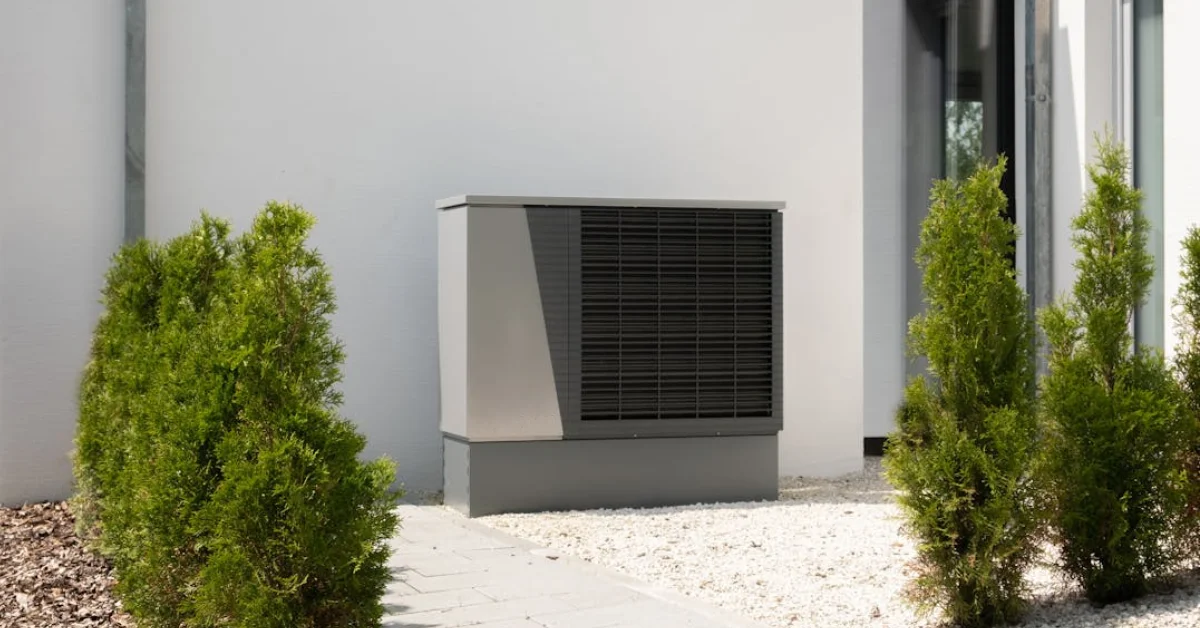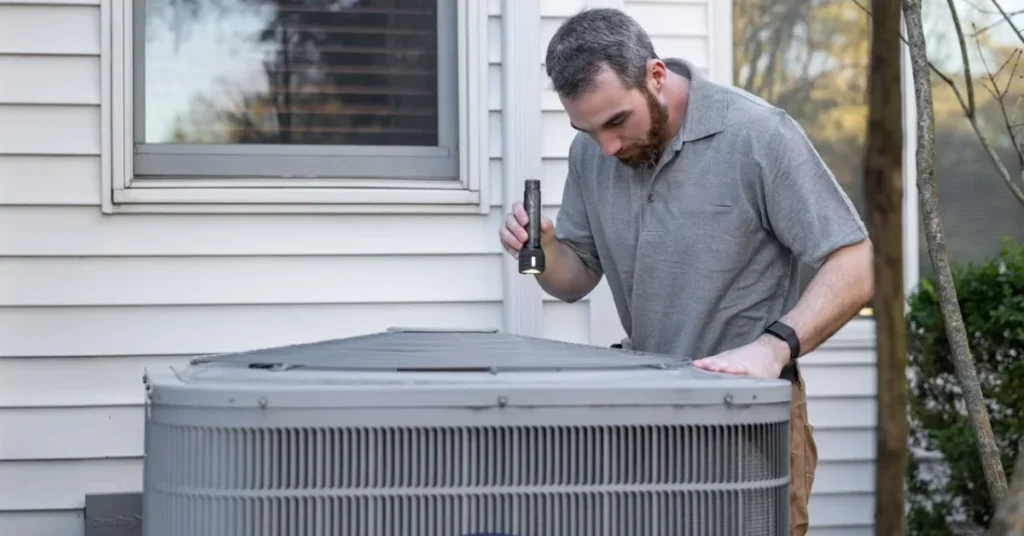Heat pumps are becoming an increasingly popular option for homeowners looking to improve their energy efficiency while reducing heating costs. These systems utilise electricity to move heat rather than generating heat like traditional systems, offering a sustainable and cost-effective solution for your home.
By understanding how heat pumps work and their long-term advantages, you can make an informed decision that contributes to environmental conservation and enhances your financial well-being.
The Mechanics of Heat Pumps
Heat pumps function on a straightforward principle based on thermodynamics. They transfer heat from one area to another, either extracting it from the outside air, ground, or water and releasing it indoors, or vice versa. This ability to shift heat rather than create it allows heat pumps to operate with remarkable efficiency. A well-designed heat pump can produce three times more heating energy than the electrical energy consumed.
Given the potential to significantly cut down heating costs, understanding their mechanics is vital. This technology is efficient in milder climates, where it can operate effectively without excessive energy consumption. Regulatory advancements are continually improving the technology and expanding its benefits for homeowners. As more people seek sustainable home heating solutions, the market for heat pumps is witnessing rapid growth, leading to innovations and better options for consumers. Beyond heating, these systems can provide cooling, showcasing their versatility throughout the year.
Cost Savings
A major advantage of heat pumps lies in their cost-saving potential. Traditional heating methods, such as gas or electric heat, can lead to exorbitant energy bills during the colder months. By investing in a heat pump, homeowners can expect to see substantial savings on their utility bills. With the rising costs of energy, committing to a heat pump makes economic sense and aligns with a broader trend towards energy independence. The initial investment may seem notable, but the return on investment is often realised within a few years, thanks to decreased energy costs.
Over the product’s lifespan, these savings accumulate, making a well-implemented heat pump system a wise financial choice. Another factor to consider is maintenance expenses. Heat pumps generally require less upkeep than traditional systems, which further contributes to long-term savings. Their longevity and reliability can result in fewer repairs and replacements, and wrestling with unexpected costs when a system breaks down.
Environmental Impact
Investing in a heat pump is an economically sound decision and an environmentally responsible one. These systems utilise renewable energy sources, minimising their carbon footprint compared to traditional heating solutions. As governments push for sustainability and reduced greenhouse gas emissions, heat pumps are a step toward achieving these ecological goals.
Many consumers are now actively seeking sustainable home heating solutions that help them do their part in preserving the environment. By choosing to install a heat pump, you contribute to longer-term sustainability goals while having a positive influence on the planet and future generations.
Government Incentives and Rebates
Many regions around the world have begun to recognise the advantages of heat pumps and are now offering various incentives and rebates to encourage homeowners to opt for this technology. Governments are implementing policy frameworks designed to promote energy efficiency and combat climate change. These programs frequently provide tax credits, rebates, and low-interest loans to those who invest in renewable energy technologies.
This financial assistance can significantly offset the upfront cost of a heat pump system, making it more accessible to a broader audience. Understanding the local, state, or federal programs available could maximise your savings when transitioning to this cutting-edge technology. As more individuals and communities embrace energy efficiency, the combined effort of many can lead to widespread adaptation of sustainable practices.
Noise Levels and Aesthetics
A common concern among homeowners is the noise produced by heat pumps. Modern developments in this technology have significantly minimised sound levels, making them quieter than older models and traditional heating systems. With proper placement and installation, heat pumps can operate with minimal disturbance. Interested homeowners should inquire about the noise ratings of different units before making a choice, ensuring they select an option suitable for their property.
Heat pumps come in various designs and aesthetics, allowing them to blend with a wide variety of home styles seamlessly. From sleek outdoor units to indoor arrangements that occupy minimal space, heat pump designs today accommodate different property layouts and preferences, effectively enhancing both functionality and visual appeal.
Long-Term Reliability and Lifespan
The lifespan of a typical heat pump ranges between 15 to 25 years, a duration that surpasses many traditional heating solutions. Proper maintenance can further extend this lifespan and the efficiency of heat pumps. Investing in professional servicing ensures that your system operates at optimal levels, yielding ongoing energy savings. A solid warranty and proven durability often accompany reputable heat pump brands, providing homeowners with peace of mind about their investment.
This reliability is crucial as making informed choices about new home heating solutions ensures comfort while maximising financial returns. The combination of decreasing energy costs, incentives, and long-lasting performance makes heat pumps a compelling choice for those looking to invest in their property’s future.

By understanding the multiple advantages heat pumps offer and considering their efficiency, long-term savings, and contributions to sustainability, homeowners can arrive at informed decisions. Implementing this technology paves the way for a more cost-efficient, environmentally friendly future that benefits not only individual households but society as a whole.


